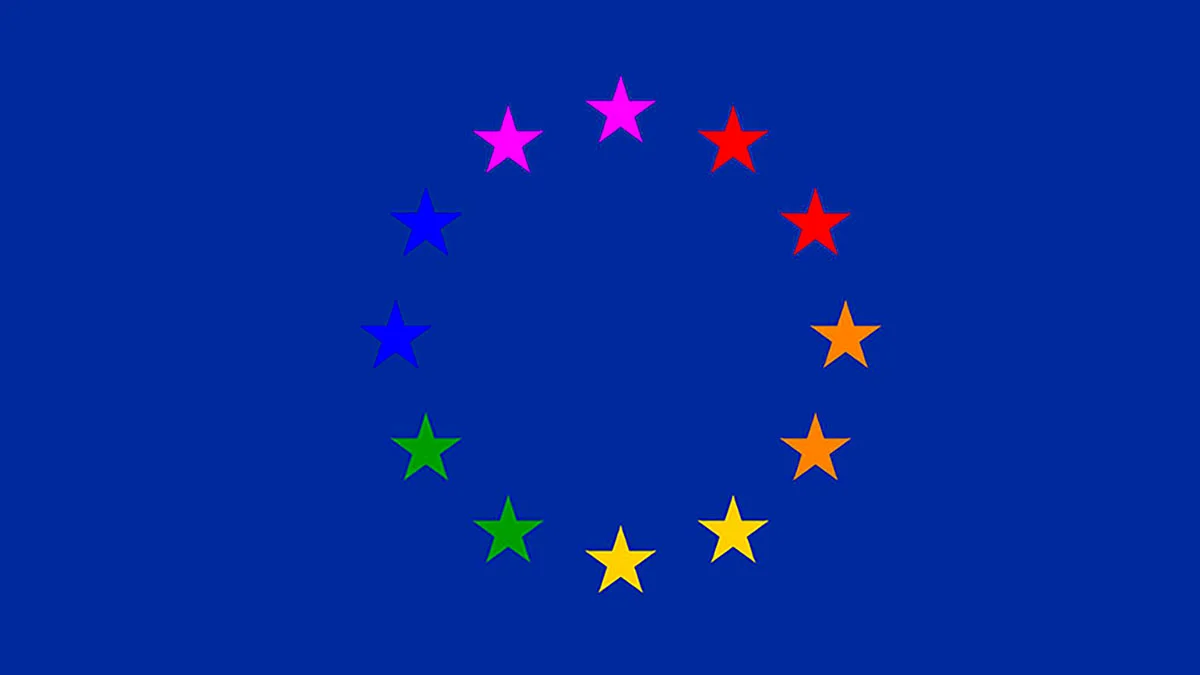
With today’s infringements the EU has clarified that member states can no longer act against human rights with impunity
According to ILGA-Europe, the infringement procedures announced by the European Commission today show that the EU has come to a tipping point; after years of governments testing how far they can go, the European Commission has taken a clear step to hold Hungary and Poland accountable on the rule of law and fundamental rights.
Today, July 15, the European Commission announced that it will take landmark infringement procedures against both Hungary and Poland. The procedures against Hungary concern the censorship of a children’s book portraying LGBTI characters, and the legislation that entered into force last week, which prohibits the inclusion of LGBTI people in material in schools or in media for under-18s. The procedures against Poland concern a refusal to clarify whether LGBTI people are discriminated against in the labour market in the country’s so-called LGBT Free Zones .
According to ILGA-Europe, the leading LGBTI rights organisation in Europe, the infringements are a clear message to all member states that they are bound by their membership to respect the core principles of the European Union.
The first infringement against Hungary is in respect of a book of reimagined fairytales with diverse characters entitled, Wonderland is for Everyone, which was published in September 2020. The book became an immediate target of homophobic attacks by politicians in the ruling Fidesz party, including the Hungarian Prime Minister Viktor Orbán, calling it «homosexual propaganda». In January, the Hungarian government ordered the publisher of Wonderland is for Everyone to print disclaimers identifying books containing «behaviour inconsistent with traditional gender roles», thus restricting the right to freedom of expression and the right to non-discrimination as enshrined in Articles 11 and 21 of the EU Charter of Fundamental Rights and breaches the Unfair Commercial Practices Directive.
The second Hungarian infringement is in relation to legislative amendments voted in on June 15, banning the «portrayal and the promotion of gender identity different from sex at birth, the change of sex and homosexuality» for persons under 18 and for public service advertisement even without any age limit. The language surrounding this ban has been introduced into the following Hungarian legislation: the Child Protection Act, the Family Protection Act, the Act on Business Advertising Activity, the Media Act, and the Public Education Act, clearly breaching a number of EU laws and violate international human rights norms, in particular restricting cross-border information society services, and the Treaty principles of the freedom to provide services (Article 56 TFEU) and the free movement of goods (Article 34 TFEU), by failing to demonstrate that the restrictions are necessary, non-discriminatory, and proportionate and pursue a legitimate interest.
On the day the Hungarian legislation came into force, the European Parliament voted in favour of urgent legal action against its member state, saying that the law was “another intentional and premeditated example of the gradual dismantling of fundamental rights” in the country.
The infringement against Poland has been launched because of the non-cooperation of Polish authorities in clarifying the question in how far the so-called Family Charters and LGBT Free Zones, which over 100 Polish local governments have adopted since 2019, might lead to discriminationon the grounds of sexual orientation and the Charter of Fundamental Rights, specifically ensuring non-discrimination in access to and in the labour market in line with EU anti-discrimination law, and also regarding management of the Structural and Investment Funds.
According to ILGA-Europe’s Advocacy Director, Katrin Hugendubel: «By opening infringement procedures, the EC clearly states that the Polish and Hungarian governments are violating fundamental rights and, as they are unwilling to engage in sincere cooperation, and is now stepping up and opening a clear procedure to ensure the full respect of the Treaties and EU legislation. This could ultimately result in the EC bringing both countries in front of the Court of Justice of the European Union (CJEU)».
Over the past two years, ILGA-Europe has been advocating at the highest EU levels for sanctions against Poland and Hungary, as the governments of both countries have increasingly stoked anti-LGBTI hatred, thereby sewing political and societal division. ILGA-Europe stated concerns that this instrumentalisation of a vulnerable minority, which was first employed by Vladimir Putin in 2013 with the Russian anti-propaganda law, was providing an example to the governments of other EU member states leaning in this direction, who saw Poland and Hungary acting with impunity in violation of EU directives and core values.
Executive Director of ILGA-Europe, Evelyne Paradis said: «For years now, we have been observing some EU member states consistently testing EU democracy and the protection of the rule of law and fundamental rights. The infringement procedures announced today send a clear signal that enough is enough. EU member states can no longer act against human rights with impunity, nor can governments go on instrumentalising minorities for political gains. They have to and will be held accountable».
